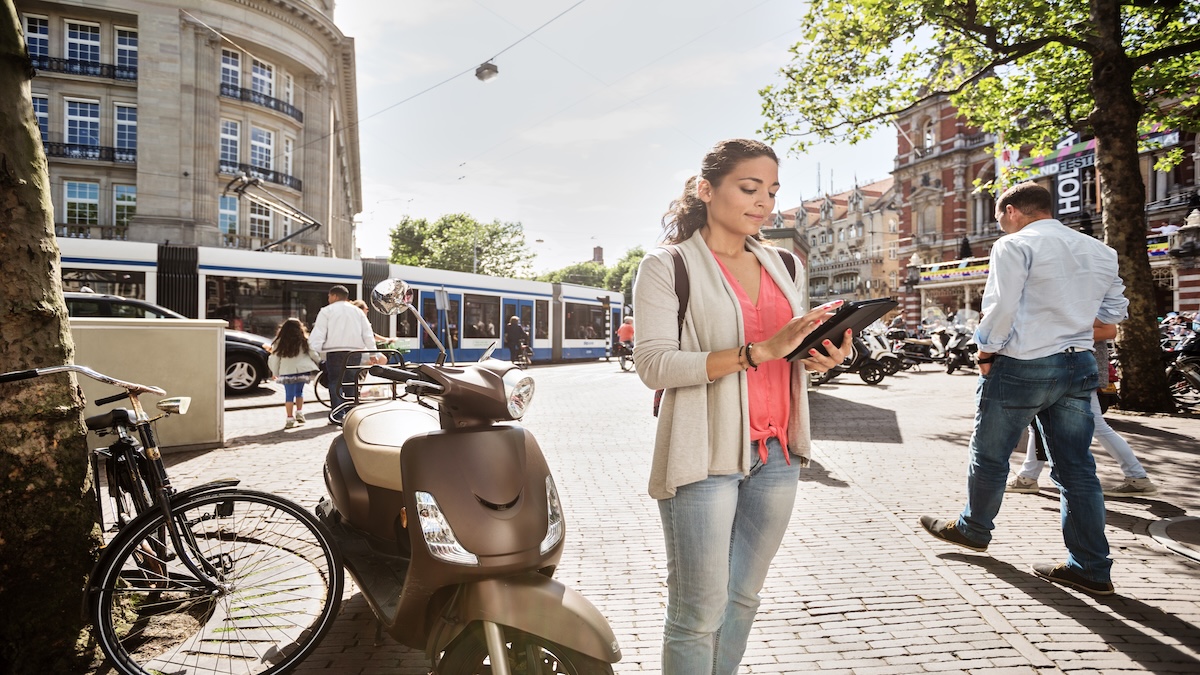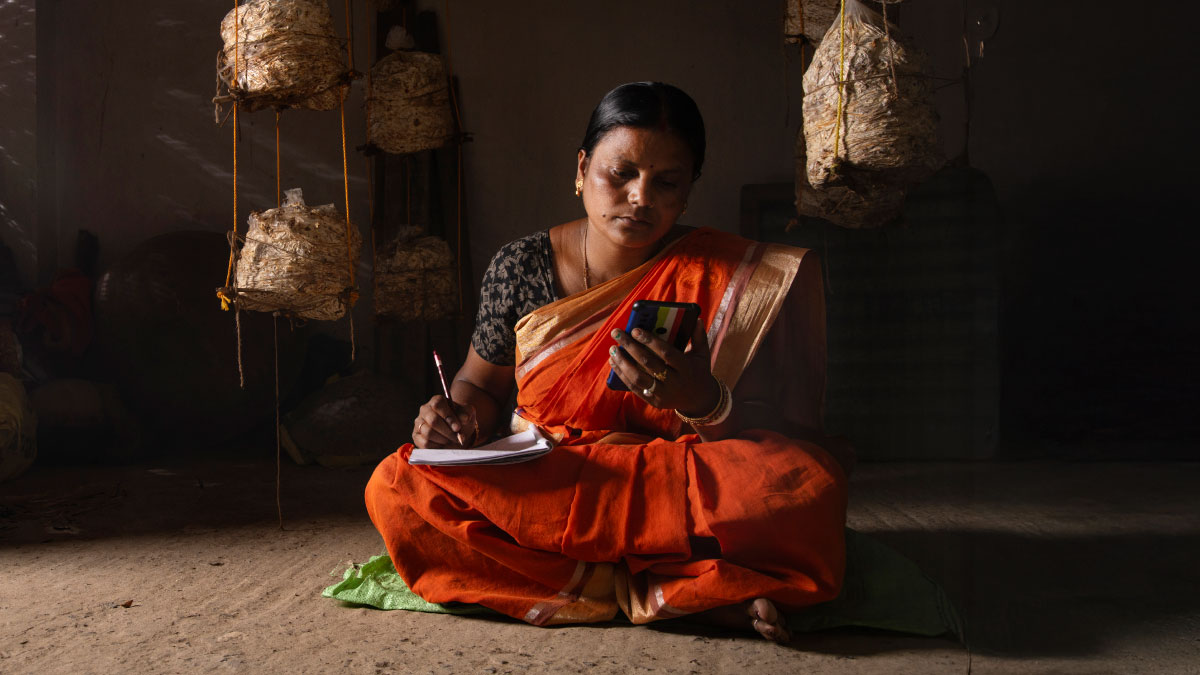Cisco to co-develop with the OECD WISE Centre an interactive knowledge hub to help understand technology’s role in fostering inclusion and improving well-being
News Summary:
- The rapid pace of digital transformation and advancements in AI merit a global discussion on how people experience technological change.
- Technology can be a force for good, but it can also pose risks to well-being through unintended consequences on mental health and social connectedness, digital divides, threats to cybersecurity and disinformation.
- Cisco and the OECD WISE Centre will build a global knowledge hub for data and evidence on the influence of digital transformation on different aspects of people’s lives and well-being.
- The initiative helps to continue Cisco’s work to positively impact the lives of billions of people worldwide and promote inclusion and equal opportunity for all to prosper in a global digital economy.
DAVOS, Switzerland, Jan. 16, 2024 – Technology is transforming our lives, changing the way we learn, work, interact with others and get access to all types of services. Depending on our ability to access technology and use it in the right way, technology can improve our sense of well-being and be a real driver of progress. Cisco (NASDAQ: CSCO), a global technology leader committed to fostering an inclusive future for all, continues its efforts to address the digital divide through a new research collaboration with the Organisation for Economic Co-operation and Development (OECD).
This collaboration aims to help promote a responsible use of technology as well as fairness, inclusion and equitable access in a global digital economy.
Igniting a Global Conversation
As digital transformation continues to reshape every aspect of our lives at an intensifying pace, Cisco and the OECD Centre on Well-being, Inclusion, Sustainability and Equal Opportunity (WISE) are joining forces to examine the complex nature of digital transformation and its role as both a catalyst for progress and a source of potential risks to well-being.
“The OECD has a long tradition of work supporting policy makers better understand the digital transformation and develop appropriate policies to help shape a positive digital future. Our initial report, ‘How’s Life in the Digital Age’, highlighted the benefits and challenges of digital transformation, from enhanced access and productivity to issues like the digital divide and personal security threats in people’s everyday life and workplace. Our partnership with Cisco helps us take the next step in broadening what we know about the interplay between technology and life to enrich our understanding of well-being in the digital realm,” said Romina Boarini, OECD WISE Centre Director.
This collaboration aims to create an interactive, dynamic and engaging digital platform for sharing experiences to help develop a detailed picture of how digital technologies influence different aspects of our lives. Grounded in the OECD Well-being Framework, the platform will gather new statistics and people’s insights on digital well-being as a whole, including the impact of the digital divide and inequalities in the uptake and use of digital technologies.
Strategic Momentum from Cisco’s Country Digital Acceleration Programs
Cisco's involvement in the OECD WISE Centre initiative is an extension of its Country Digital Acceleration (CDA) program, which has a long history of collaborating with governments, industry and academia to foster sustainable, secure and inclusive communities through over 1500 projects in 50 countries.
“We cannot close the digital divide on our own. Governments, industry, educational institutions, non-profits and community leaders must work together in new ways to prioritize our collective well-being for a healthy, prosperous and safe digital life. It’s no coincidence that the priorities and the OECD's Well-being Framework resonate so profoundly. This partnership taps into Cisco and OECD’s collective expertise in understanding the risks and unlocking the value of digitization across verticals and industries to ultimately power safe and inclusive communities, and resilient economies,” said Guy Diedrich, Senior Vice President & Global Innovation Officer of Cisco.
Digital Access is No Longer a Privilege for Some but a Necessity for All
The partnership between Cisco and the OECD builds on existing research into digital well-being. It acknowledges that while digital technologies offer benefits like improved access to education and health information, they also pose risks. Notably, the digital divide, where those lacking digital literacy—a blend of technical, emotional, and social skills—fall behind, becoming vulnerable to mental health risks and safety concerns. Recognizing that broad internet access isn’t enough to participate in digital life, the new partnership seeks to rally citizens, businesses, policymakers and workers to develop a balanced approach that ensures technology improves well-being and mitigates potential risks.
A New Industry Study and Knowledge Hub
Cisco and the OECD will conduct research and create a global knowledge hub, capturing data and expanding knowledge on the influence of digital transformation on different aspects of people's lives. This initiative marks a crucial step in understanding technology’s role across a broader definition of well-being that covers 11 key dimensions: education and skills, healthcare, jobs and earnings, income and wealth, subjective well-being, smart communities—work-life balance and social connections—environmental sustainability, critical infrastructure, cybersecurity, governance and civic engagement, and housing. The research aims to help users make informed decisions, empower individuals to navigate the digital landscape responsibly, and to promote a healthy relationship with emerging technology.
“While we continue to strive for full digital inclusion around the world, we cannot do so at any cost. It is our responsibility to keep well-being top of mind, and this partnership will help us connect with people around the world to learn about their experiences with digital technology—how it influences their social connections, their jobs and work-life balance, and their physical and mental health. Co-building a model and better understanding the role technology plays in everyday life is fundamental to our work at Cisco, and to pursuing our purpose to power an inclusive future for all,” said Fran Katsoudas, Executive Vice President & Chief People, Policy and Purpose Officer of Cisco.
The Year Ahead: Hub Launch and Well-being Forum
The partnership will launch its ‘Digital Well-being Hub’ in the second half of 2024. In November, Cisco will participate in the OECD’s World Forum on Well-being, which addresses the value of well-being approaches for improving knowledge, performance and cooperation across the public, private and civil sectors in a context of societal change.
Additional Resources:
- Cisco exceeds goal to positively impact one billion people
- CISCO ESG Reporting Hub and FY23 Purpose Report
- Cisco Country Digital Acceleration (CDA) Program
- Cisco Networking Academy
- OECD Going Digital Project
- OECD report “How’s Life in the Digital Age?”
About Cisco
Cisco (NASDAQ: CSCO) is the worldwide technology leader that securely connects everything to make anything possible. Our purpose is to power an inclusive future for all by helping our customers reimagine their applications, power hybrid work, secure their enterprise, transform their infrastructure, and meet their sustainability goals. Discover more on The Newsroom and follow us on X at @Cisco.
Cisco and the Cisco logo are trademarks or registered trademarks of Cisco and/or its affiliates in the U.S. and other countries. A listing of Cisco's trademarks can be found at www.cisco.com/go/trademarks. Third-party trademarks mentioned are the property of their respective owners. The use of the word partner does not imply a partnership relationship between Cisco and any other company.
About OECD
Working with over 100 countries, the OECD is a global policy forum that promotes policies to preserve individual liberty and improve the economic and social well-being of people around the world.




